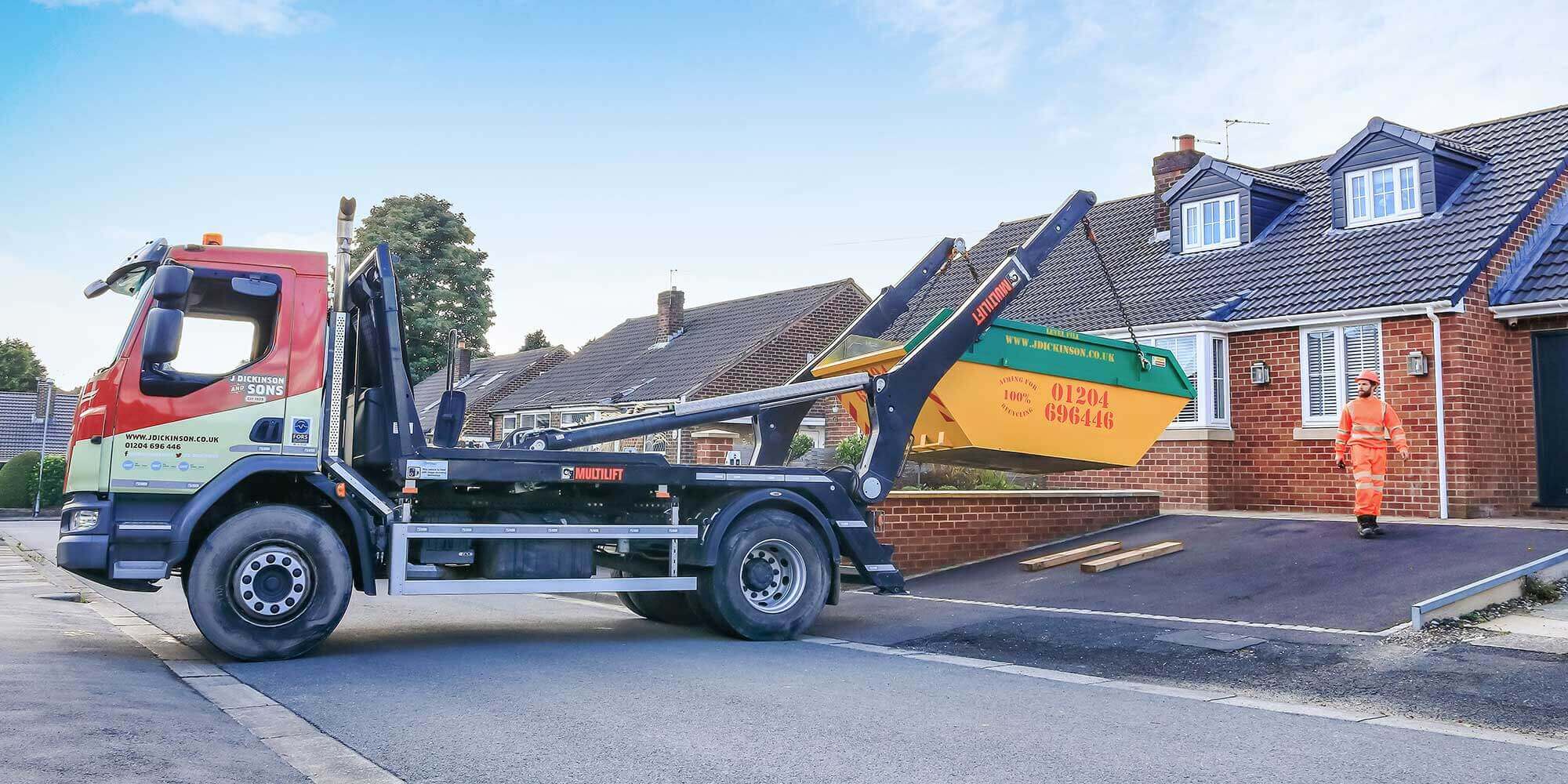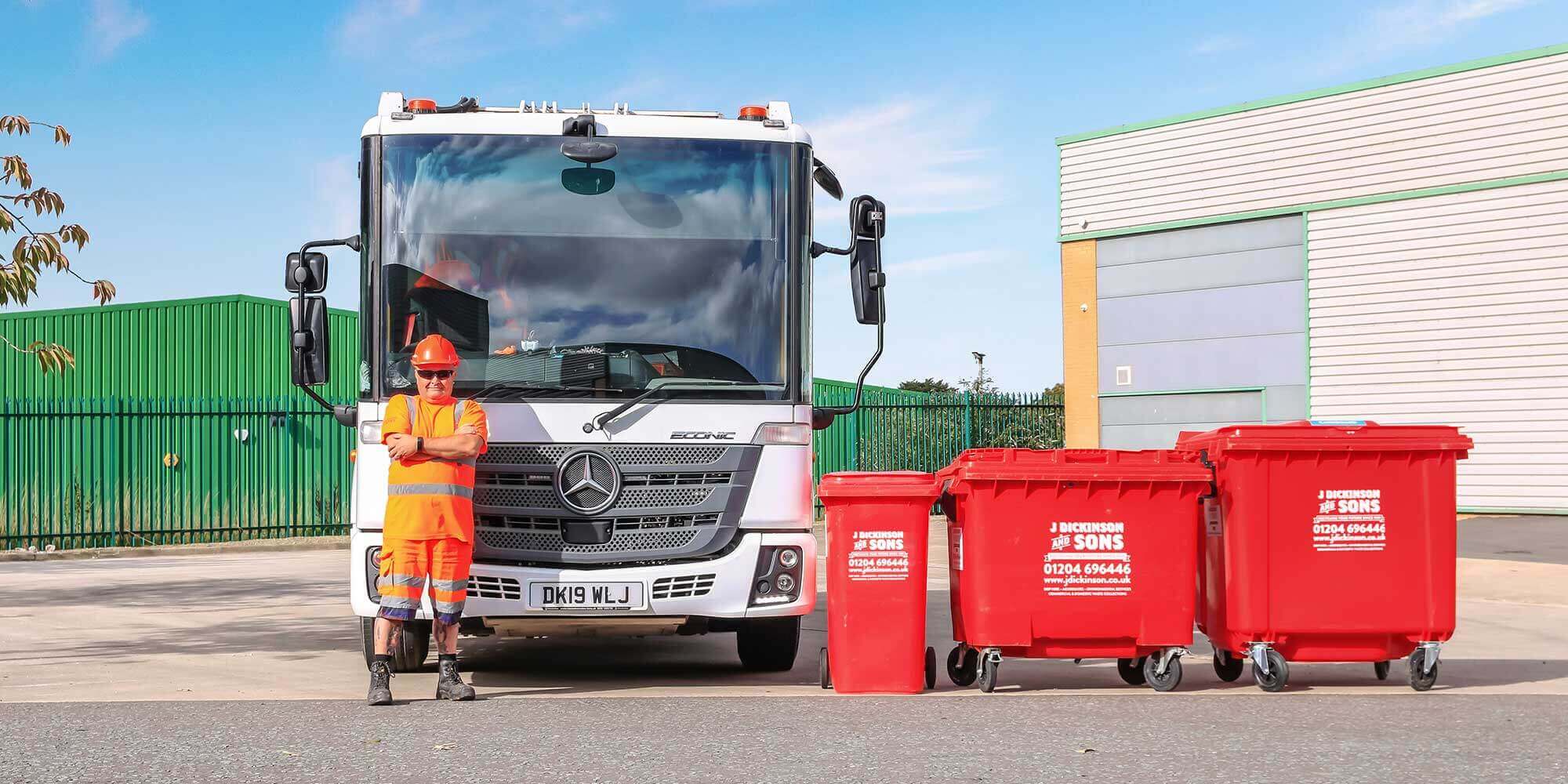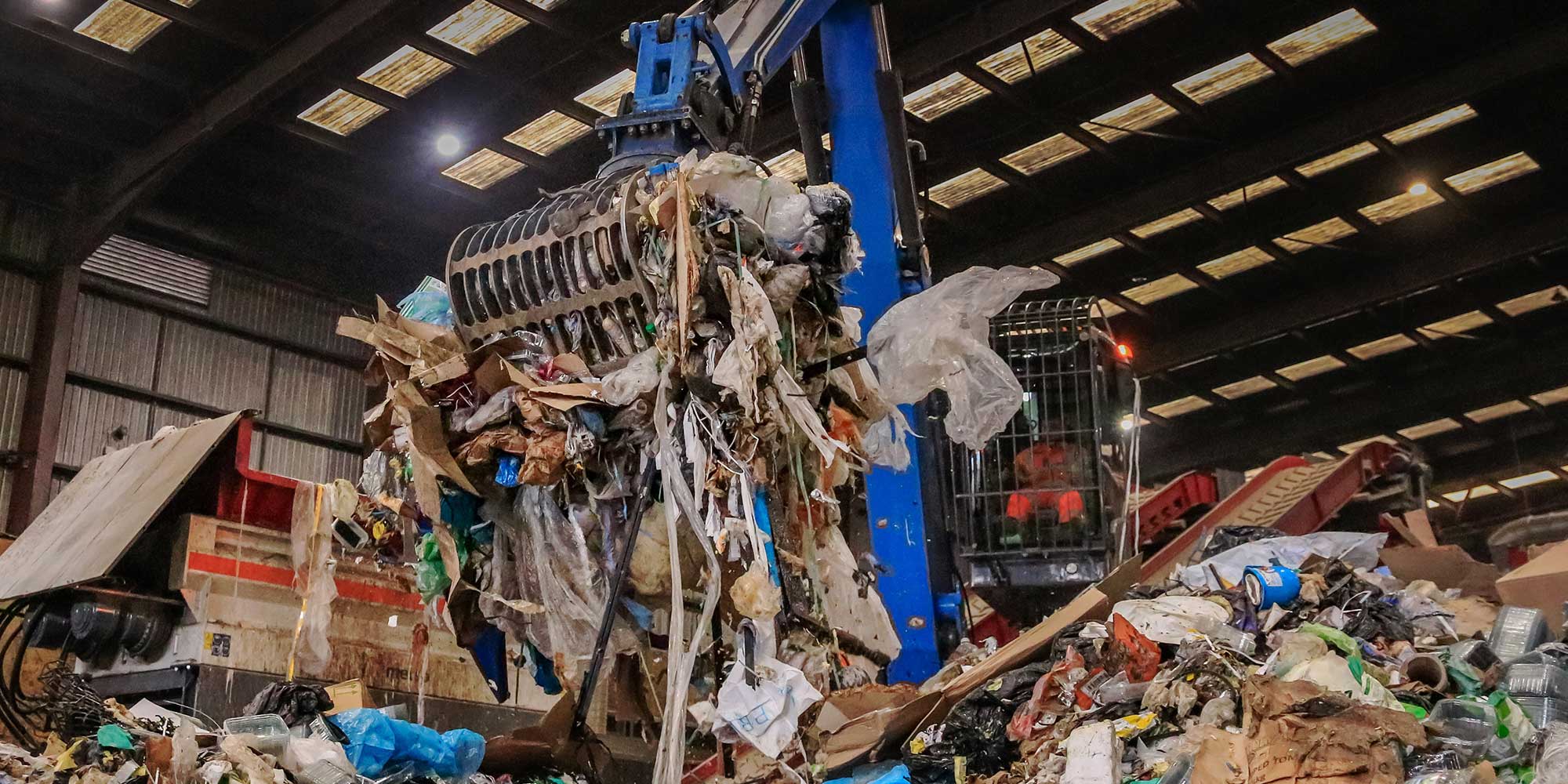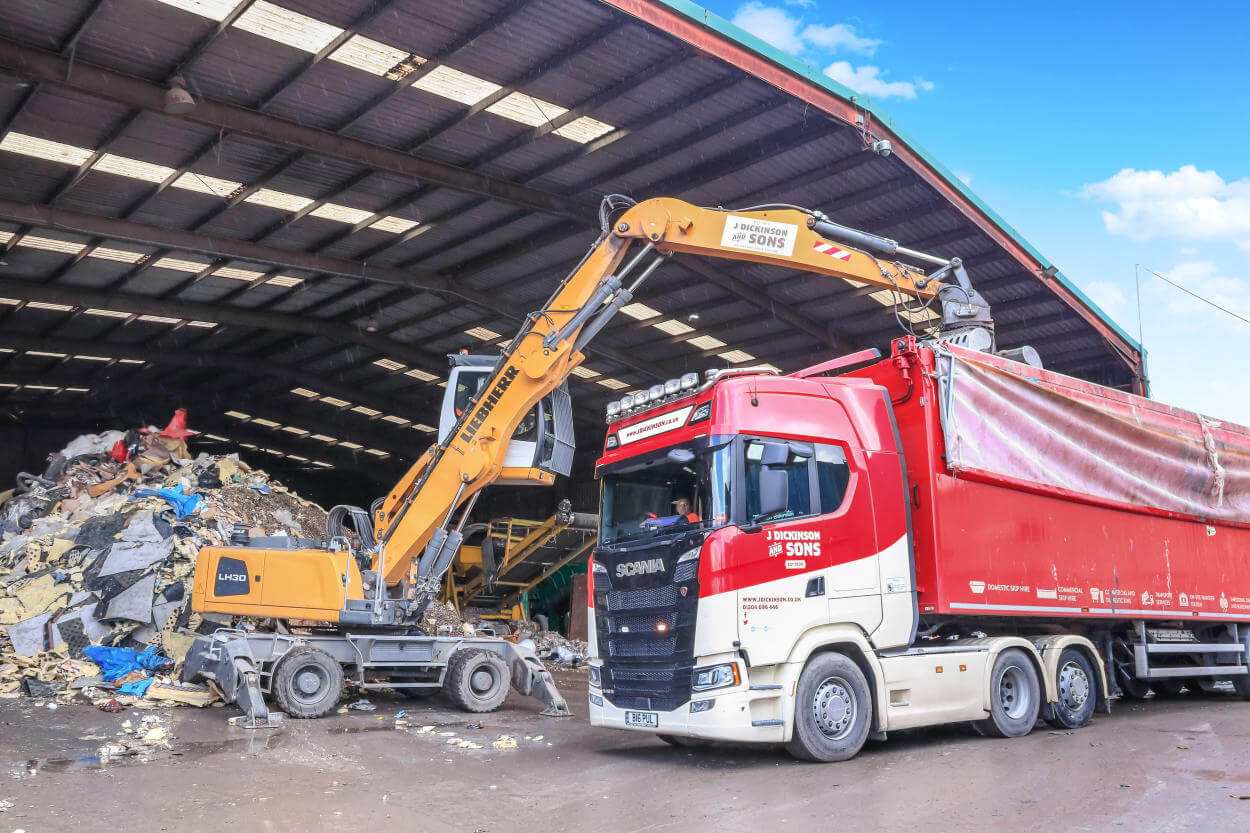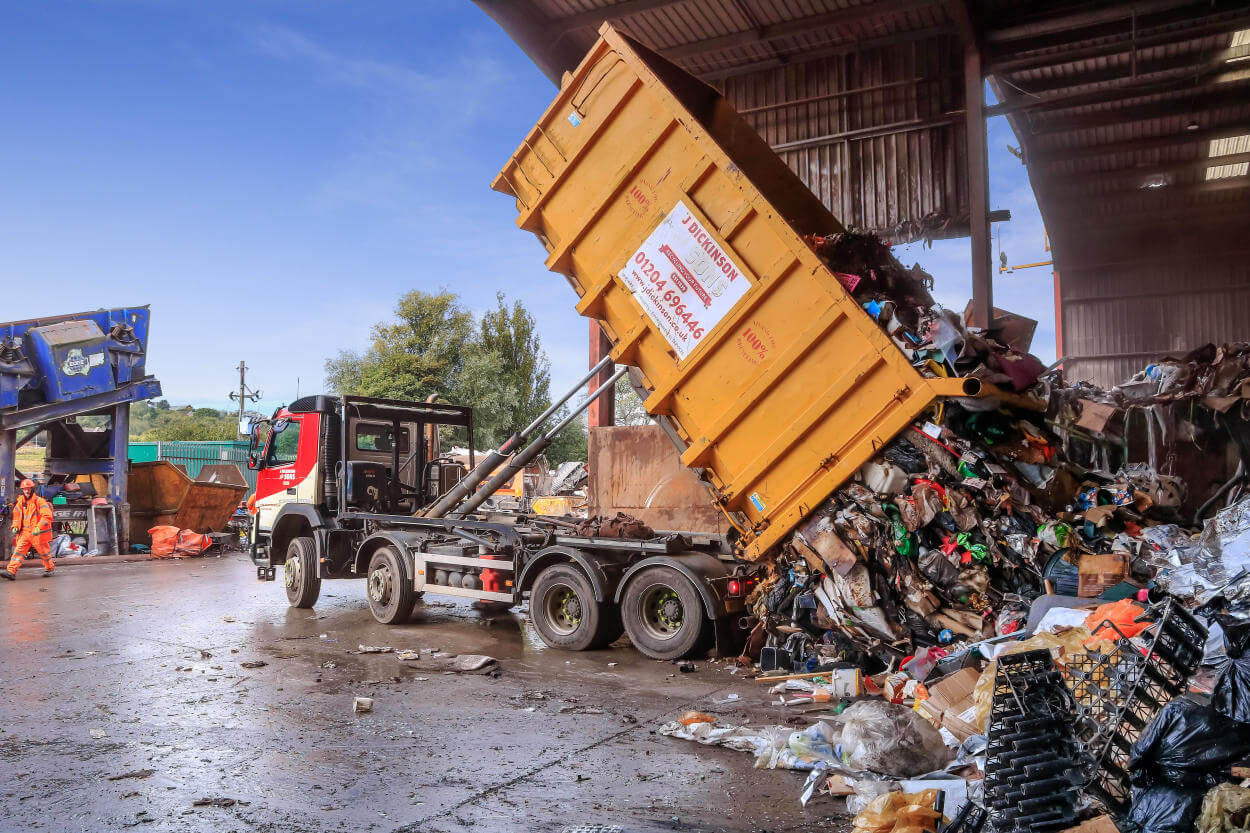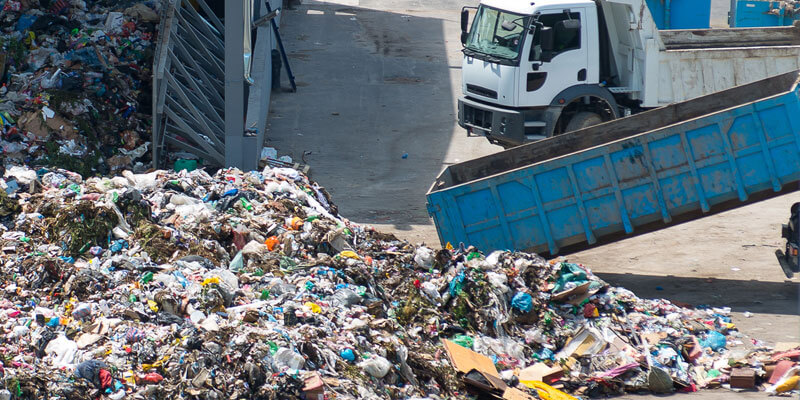
Fly-tipping in England has increased by 6% in the past year and reached 1.15 million incidents in 2023/24. Whether it’s a mattress dumped on a street corner or bags of rubble thrown into the countryside, fly-tipping is part of a growing problem that affects communities and the environment. In this guide, we’ll break down exactly what fly-tipping is, why it’s illegal, what the consequences are, and how you can help tackle it.
We also service surrounding areas such as skip hire Bolton, skip hire Chorley and skip hire Wigan.
Jump to:
- What is the legal definition of fly-tipping?
- Is fly-tipping a criminal offence?
- What is the fine for fly-tipping?
- What are the consequences of fly-tipping?
- Here’s how to report fly-tipping if you see it
What is fly-tipping?
Fly tipping is the illegal dumping of waste on land that doesn’t have a permit to accept it. This can include everything from household waste and garden waste to commercial waste, construction and demolition waste, and even hazardous substances.
According to the Environmental Protection Act 1990, fly-tipping is classed as a waste crime. It covers any situation where someone deposits waste without permission, whether it’s one black bin bag or a van full of rubble.
Fly tipping can take place on:
- Public land such as parks, roadsides, or pavements
- Private land, including farmland, business premises, or empty lots
- Public roads, where fly-tipped waste can create traffic and safety risks
Is fly-tipping a criminal offence?
Yes, fly-tipping is a criminal offence in the UK. It’s treated seriously by local authorities, the Environment Agency, and other enforcement teams because of the damage it causes to the environment, wildlife, and communities. You don’t have to be the one dumping the waste to be held responsible. If you hire someone to take away your rubbish and they fly-tip it, you could still face prosecution, especially if they weren’t a registered waste carrier with a relevant licence.
What is the fine for fly-tipping?
For minor fly-tipping, councils can issue a fine between £200 and £400. But for larger or repeat offences, fines can reach up to £50,000 or even lead to a prison sentence. As well as fines, you could have your vehicle seized (if it was used to fly tip), and you could be ordered to pay the full cost of cleaning up the waste. If you’re a registered waste carrier caught fly-tipping, you could also lose your business licence.
What are the consequences of fly-tipping?
Fly-tipping comes with many serious consequences for both local communities and the environment.
Firstly, it’s an eyesore for neighbourhoods, making them less welcoming and safe. There’s also a knock-on effect for local economies – fly-tipping can drive people away from the affected area, which hurts nearby businesses and causes property prices to fall.
If fly-tipped rubbish contains toxic substances which leak into nearby rivers or streams, it can poison the water and harm wildlife and anyone who relies on the water. Animals can also be injured by sharp or hazardous materials, and plant life can be impacted by damage to soil health.
Fly-tipping on private land can be especially frustrating. Unlike on public land, where local councils are responsible for clearing the waste, private landowners are left to deal with the clean-up themselves, even though they didn’t cause the problem, including covering the cost of removal.
Here’s how to report fly-tipping if you see it
If you see fly-tipping take place or find fly-tipped waste, you should report it to your local authority immediately. Most council websites have a dedicated section on their website where you can report fly-tipping on both public and private land.
What evidence do you need to report fly-tipping?
If you witness fly tipping, gather as much evidence as possible to help your local council or the Environment Agency take action, including:
- The registration number of the car involved
- Photos or video footage from nearby homes.
- The time and place where it happened.
- A description of the person or people involved.
J Dickinson & Sons: Helping Greater Manchester remove waste legally and safely
Need your waste cleared fast – the right way? J Dickinson & Sons is the North West’s most established waste management provider, trusted for reliable skip hire and a no-fuss service. Avoid fines and the stress of illegal dumping with a licensed team that keeps waste removal safe and fully compliant. Call 01204 696446 or book online now.
FAQs
What is the difference between fly-tipping and littering?
Fly-tipping involves illegally dumping large items or large amounts of waste (e.g. furniture, construction debris) on land that is not licensed to take it. Littering refers to smaller items like food wrappers, drink cans, or cigarette butts that are dropped in public places. While still an offence, littering is seen as less serious and carries smaller penalties than fly-tipping.
What is an example of fly-tipping?
Fly-tipping means illegally dumping waste on public or private land without permission. This includes:
- Unloading black bags, old furniture, or building waste in country lanes, car parks, or fields
- Leaving a fridge or a mattress on the roadside without arranging for proper collection
- Dumping rubbish in back streets or on public pavements outside your property
Even small actions like placing unwanted items outside your home can count as fly-tipping. It’s a growing issue in many areas, where one person’s rubbish quickly attracts more, and before long, the whole street suffers.
Fly-tipping is a criminal offence and can lead to fines or legal action.
Is fly-tipping a police matter?
Fly-tipping is usually handled by local councils or the Environment Agency. However, the police may get involved if they suspect it’s linked to other criminal activity or if hazardous materials have been dumped.
Share this
